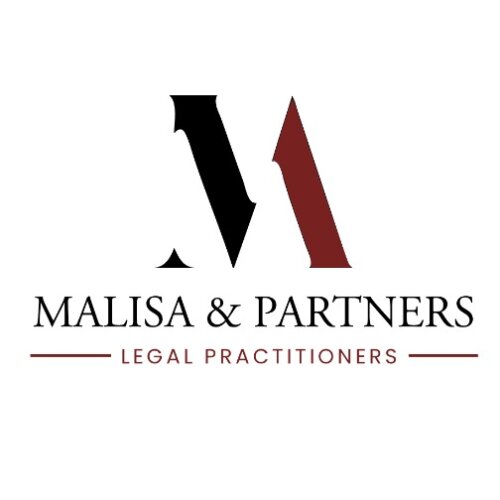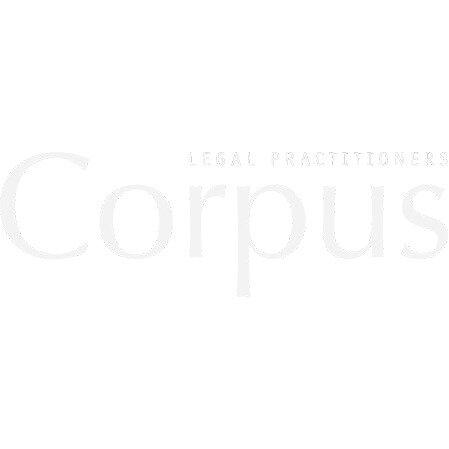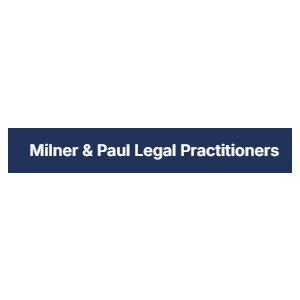Best Real Estate Lawyers in Zambia
Share your needs with us, get contacted by law firms.
Free. Takes 2 min.
Free Guide to Hiring a Real Estate Lawyer
Or refine your search by selecting a city:
List of the best lawyers in Zambia
About Real Estate Law in Zambia
Real estate in Zambia has been growing rapidly, fueled by urbanization, population growth, and an expanding middle class. The sector encompasses a range of activities including ownership, leasing, and development of land and property. The legal framework governing real estate in Zambia is complex, involving various statutory and customary laws. Ownership of real estate can be categorized into state land, customary land, and tenure systems, each with specific regulations and rights attached to them.
Why You May Need a Lawyer
There are several scenarios in which you may need legal assistance in the realm of real estate in Zambia:
- Property Transactions: Buying or selling property involves intricate legal procedures that require thorough due diligence.
- Dispute Resolution: Disputes may arise over boundary issues, title claims, or lease agreements, necessitating legal intervention to protect your rights.
- Title Deeds: Navigating the process of registration and obtaining title deeds can be complex without professional guidance.
- Leasing Agreements: Drafting or reviewing lease contracts to protect interests and ensure compliance with applicable laws.
- Succession and Inheritance: Legal assistance is often required to manage property succession planning and resolving inheritance issues.
Local Laws Overview
The key aspects of local real estate laws in Zambia that individuals should be aware of include:
- The Lands Act: Governs land tenure and procedures for acquiring, holding, and transferring land.
- The Urban and Regional Planning Act: Provides guidelines for zoning, land use, and urban planning.
- The Land Registration Act: Establishes the framework for the registration of titles and deeds.
- Local Government Laws: Manage the regulation of property development and building codes within local district councils.
- Customary Laws: Govern the allocation and use of land within customary areas, under local traditional leadership.
Frequently Asked Questions
What is the process for buying property in Zambia?
Purchasing property involves identifying the land, conducting a search at the Ministry of Lands to verify ownership, negotiating terms, drafting a contract of sale, paying necessary fees, and registering the transfer at the Lands and Deeds Registry.
How can I verify the ownership of a property?
You should perform a title search at the Ministry of Lands to verify ownership and check for any pending claims or encumbrances on the property.
What is customary land and how can it be acquired?
Customary land is managed by traditional leaders and can be acquired through allocation by chiefs or village headmen, with conversion to statutory land possible through obtaining a state lease.
Are foreigners allowed to own property in Zambia?
Yes, foreigners can own property in Zambia, but it's often conditional upon obtaining a state consent, and they are typically restricted from owning land under customary tenure.
What taxes are applicable in real estate transactions?
Taxes usually include Property Transfer Tax, based on the property's sale price, and annual ground rent payable to the Ministry of Lands for leasehold properties.
What are the rights of a tenant under Zambian law?
Tenants have rights to peaceful enjoyment of the property, protection against illegal eviction, and housing that meets local building standards, as outlined in the Rent Act.
How long does it take to register a property?
Registration can take several weeks to months, depending on the completeness of the required documents and the efficiency of procedures at the Registry of Lands.
Is it necessary to have a lawyer when dealing with real estate?
While not legally required, having a lawyer can provide crucial expertise to navigate legal requirements, draft or review contracts, and enhance the protection of your rights.
What are the consequences of not registering a property?
Failure to register can lead to disputes over ownership, difficulties in transferring the property, and potential legal challenges regarding rights to the land.
How do inheritance laws affect property ownership?
Inheritance of property is governed by statutory laws and customary practices, depending on the deceased's estate arrangement, necessitating proper documentation and legal advice for smooth succession.
Additional Resources
For further assistance and resources, the following may be of help:
- Ministry of Lands: Responsible for land administration, registration, and title issuance.
- Zambia Institute of Chartered Accountants (ZICA): Provides information on financial aspects of property transactions.
- The Law Society of Zambia: Can refer individuals to qualified real estate lawyers.
- Zambia Revenue Authority: Offers guidance on tax obligations related to real estate.
Next Steps
If you require legal assistance in real estate matters, consider the following steps:
- Research and identify a legal practitioner specializing in real estate law through legal directories or referrals from trusted sources.
- Prepare all relevant documentation related to your real estate concern to facilitate efficient consultation.
- Contact local legal associations, such as the Law Society of Zambia, for recommendations on reputable lawyers or firms.
- Schedule a consultation to discuss your needs, the services offered, and legal fees.
- Take proactive measures to follow through on advice given, ensuring compliance with legal requirements and protecting your property interests.
Lawzana helps you find the best lawyers and law firms in Zambia through a curated and pre-screened list of qualified legal professionals. Our platform offers rankings and detailed profiles of attorneys and law firms, allowing you to compare based on practice areas, including Real Estate, experience, and client feedback.
Each profile includes a description of the firm's areas of practice, client reviews, team members and partners, year of establishment, spoken languages, office locations, contact information, social media presence, and any published articles or resources. Most firms on our platform speak English and are experienced in both local and international legal matters.
Get a quote from top-rated law firms in Zambia — quickly, securely, and without unnecessary hassle.
Disclaimer:
The information provided on this page is for general informational purposes only and does not constitute legal advice. While we strive to ensure the accuracy and relevance of the content, legal information may change over time, and interpretations of the law can vary. You should always consult with a qualified legal professional for advice specific to your situation.
We disclaim all liability for actions taken or not taken based on the content of this page. If you believe any information is incorrect or outdated, please contact us, and we will review and update it where appropriate.
Browse real estate law firms by service in Zambia
Zambia Attorneys in related practice areas.
Browse real estate law firms by city in Zambia
Refine your search by selecting a city.
















